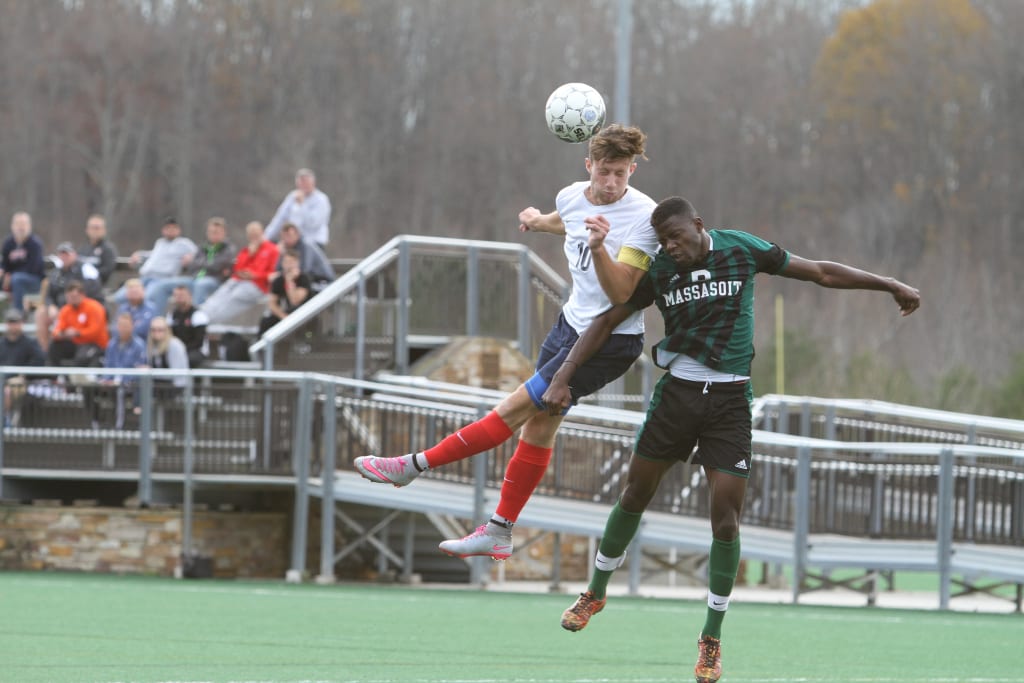The U.S. Men's National Soccer Team Is Underachieving
The women's national team is outshining the men's team.

The United States men's national soccer team is probably one of the most underachieving soccer teams globally in FIFA. When you look at the demographics for soccer in the United States, you clearly see a lot of soccer fields and kids playing on travel clubs and attending some kind of soccer camps. In the U.S., there are over 12 million kids playing outdoor soccer and almost 5.5 million playing indoor soccer as of 2017. In the high school ranks, there are 456,362 boys playing soccer in high school and 390,482 girls playing in high school.
Why can't the U.S. place a team on the pitch that is capable of winning the world cup? Wait, the woman have done it on a consistent basis considering the numbers. So, the question should be, "Why can't the U.S. men's national soccer team place a winning team on the pitch that is capable of winning the World Cup?" I am going to say say that you cannot blame the coaching staff of the national team, but I will and can blame them for not taking a deeper look into the American talent pool on the men's side. It is plain as day on many occasions during an international competition that the U.S. is usually outclassed by England, Germany, Brazil, Spain, and the Italy in FIFA. These other countries have youth soccer programs that are phenomenal, and they get the talented kids in those programs early and their most talented kids are usually PRO club ready for the international stage by ages 16 and 17 on average. This is the standard for the majority of the powerhouse soccer nations.
The U.S. dominates in many different sports, but soccer is not one of them for many reasons. American soccer coaches are super conservative and really have not changed, plus in most cases, the way the team is put together, all 11 players on the field are not the best in the country. How is the U.S. side put together? What is the process? Why don't they copy the European model which just happens to work for the FIFA power countries? How is it that the women's team has been successful at the highest levels, but the men's team just cannot equal the success of the women's team?
At the end of the day, the U.S. National Team has no excuse for not winning the world cup because of the numbers and the need to use the successful models for recruiting and strategy. The soccer culture in the U.S. just has to change all the way around from the little kids league to the national team. The coach needs to come up with a player development plan for all the age groups leading up to the national team in order to equal out on an internationally competitive level.
The Talent Pool of U.S. Soccer

The U.S. soccer talent pool is so deep, as far as the numbers are concerned, but how is it that the U.S. women's national team is successful, but the U.S. men's national team is always falling short? Is the 16U National Team competitive? Is the 20U National Team competitive? What is really going on? All of the women's teams are competitive, so why aren't the men's teams?
The U.S. women's national team is probably the best women's team in the world right now, and it is probably the greatest women's soccer team of all time. In eight World Cup appearances, they've claimed three World Cup titles; they've also won four Olympic Golds, and they've claimed eight Gold Cups in nine appearances of the CONCACAF Championships. As of 2017, there were 846,844 people playing soccer in high school in the U.S., with 390,482 of those participants being female. With the participation of U.S. soccer in the high school ranks around 850,000 and the numbers nearly being identical, what is the women's team doing that the men's team is not? Is it the talent? Is it strategy? Is it all of the above? The women's national team numbers are not far off from the men's participation numbers. The next question would be, does the women's side have more depth and talent than the men's? Or could it just be the ego of the men's manager and the players? Could these be the answers to why the women's team is an international power and the men's team seems to be popular, but yet still underachieving?
The level of play on the men's side of soccer in the U.S. is viewed as overrated by some in soccer circles. In talking to foreign-born soccer coaches who coach at the high school level in the U.S., I have found out that the level of play for the high school level on the men's (boys) side is a step behind most soccer powerhouse nations. Even if a player decides to try to play professionally overseas after college or junior level, most international teams will not pursue American players unless they are elite and have exceptional talent. Even back when I was in high school there was a 16-year-old kid named Jamar Beasley, who was the youngest player that has ever signed an MLS contract, and that was huge because the best player in the country was a 16-year-old black kid back in 1995, but he became professional in 1998. Beasley's talent never translated over to the international scene. Soccer in the U.S. is not that big in the country as a whole, but it is only big in certain parts of the country. This could also be the reason why the level of play is not as strong in the U.S. as a nation on the men's side.
Who knows? Maybe, one day the USMNT will get it together and the culture around soccer will change in the U.S. for the men's side, and the women's side will hoist up a World Cup trophy and they'll both be the best in the world. Right now, this men's team needs to focus on not being beat by Jamaica and Venezuela.
About the Creator
A.J. Jones
6'5 Saxophonic Poetic Minister. Writer, producer, poet, and independent artist. College Athletics Wage Advocate, ADOS, advocate for reparations, advocate for HBCUs, Advocate for Arts in the Schools, and Advocate for Black Church Musicians






Comments
There are no comments for this story
Be the first to respond and start the conversation.